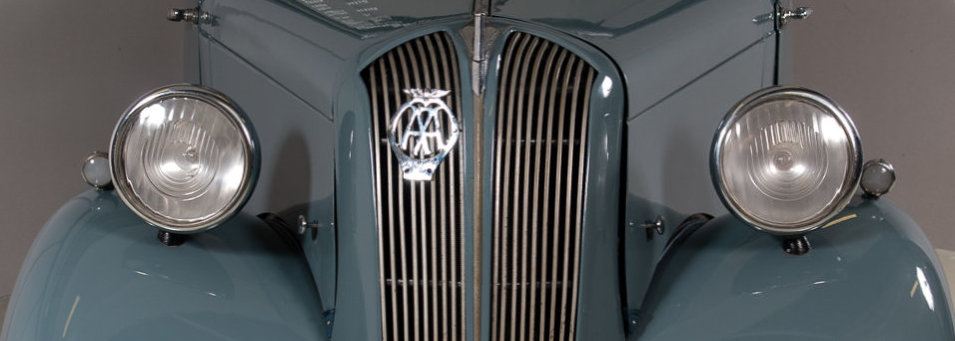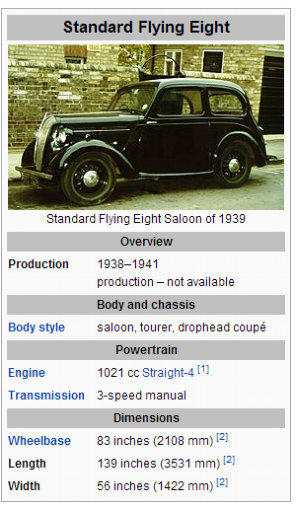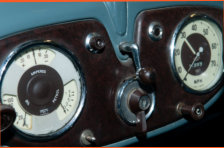



Standard´s history still remains a bit uncovered

Standard Flying Eight
Tourer - 1948
The
Standard
Eight
is
a
small
car
produced
by
the
British
Standard Motor Company from 1938 to 1959.
The car was originally launched in 1938 as the Flying Eight. After the Second World War the Flying range of Standards was dropped but an updated car called the 8 hp was re-introduced in 1945. In 1953 a completely new car, the Standard Eight was launched sharing virtually nothing with its predecessor. In 1959 the car was dropped to be replaced by the Triumph Herald, as the Standard brand was being phased out.Flying Eight
Introduced in 1938 or 1939 (sources differ), the Flying Eight featured, in its saloon form, the "streamlined" body of the little Standard Flying Nine that had appeared in 1937. However, the Flying Eight came powered by a side-valve 1021 cc long-stroke (100 mm) engine to keep it in the British 8 hp taxation class, which calculated the annual licence payable according to cylinder surface area. In this case the bore was of just 56.7 mm. A single Solex carburettor was used and the engine could produce 28 bhp at 4000 rpm. Drive was to the rear wheels through a 3-speed synchromesh gearbox. The suspension was independent at the front with a transverse leaf spring at the rear. A top speed of around 65 mph was attainable. Brakes were cable operated using the Bendix system. The car had a separate chassis and initially saloon and four seat tourer bodied versions were produced joined by the drophead coupé in late 1939. Tourers had cutaway doors and sidescreens, while drophead coupés had conventional doors and windup glass windows. Very few coupés were made before the outbreak of the Second World War halted production.8hp
The 8 hp model, without the Flying name now, was rapidly re-introduced after the Second World War with the first models appearing within ten days of VE day. The only major update from the pre-war model involved the fitting of a 4-speed gearbox. The absence of bonnet louvres on the 8hp model provided visual differentiation from the Flying Eight. The tourer could be distinguished externally from the coupé by having cutaway door tops. Estate cars were produced in 1948 only and were not on general sale. The car was firmly pitched by Standard against the Austin 8 and Morris Eight rivals and was keenly priced at £314. After this version of the 8 was phased out Standard-Triumph's next small car was the Triumph Mayflower and it was only after this model had failed to meet its sales targets that a new Standard Eight was launched.Eight
The 1953 Eight was a completely new car with unit construction and an overhead-valve engine. Only saloon models were made. The new engine of 803 cc produced slightly less power than the outgoing larger sidevalve unit with 26 bhp at 4500 rpm but this was increased to 30 bhp at 5000 rpm in 1957. The 4-speed gearbox, with synchromesh on the top three ratios, was available with optional overdrive from March 1957. Girling hydraulic drum brakes were fitted. To keep prices down, the car at launch was very basic with sliding windows, single windscreen wiper and no external boot lid. Access to the boot was by folding down the rear seat, which had the backrest divided in two. The 1954 De luxe got wind up windows and the Gold Star model of 1957 an opening boot lid. From mid-1955 all the Eights finally got wind up windows. At launch the car cost £481 including taxes on the home market. An example tested by The Motor magazine in 1953 had a top speed of 61 mph (98 km/h) and could accelerate from 0–50 mph (80 km/h) in 26.5 seconds. A fuel consumption of 43 miles per imperial gallon (6.6 L/100 km; 36 mpg-US) was recorded.Replacement
The Eight was replaced in 1959 by the Triumph Herald, which used a slightly enlarged version of the same engine.Film appearances
A Standard 4/8A Tourer is driven by the main characters in the 1951 film, The Man from Planet X.
1948
Engine 1021 cc 4 cylinders Power 31 HP Top speed 90 km/h Lenght/width 3,43 m/1,37 m Weight 750 kg The collections car has been fully restored.

Photos mainly by Matti Kreivilä. Historical facts and technical details of the vehicles provided by Wikipedia. Movies YouTube.


- Decade of 60's
- Austin 850 Pickup - 1962
- Chaika Tshaika 13 GAZ - 1962
- Citroen 2CV - 1961
- DKW Junior - 1961
- Fiat 1100 - 1963
- Ford Taunus 12M - 1961
- GLAS 1204 - 1963
- MG 1100 - 1964
- Moskvich 407 - 1961
- Nagetusch caravan - 1961
- NSU Printz 4 - 1961
- Opel Kadett A - 1964
- Panhard PL17 - 1961
- Peugeot 404 - 1962
- Renault Dauphine - 1965
- Simca Aronde P60 - 1960
- Simca 1000 - 1966















